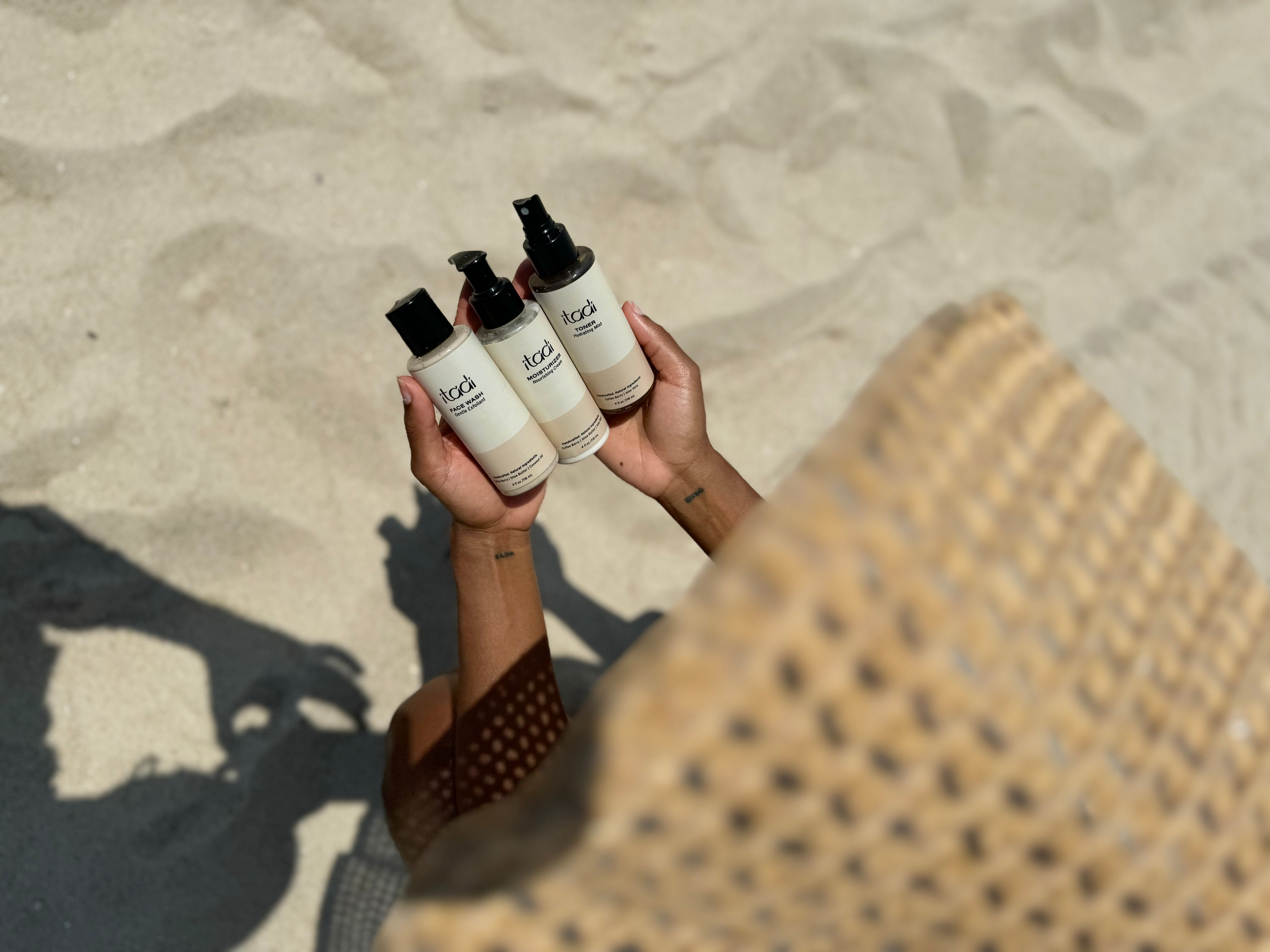In our fast-paced world, where every moment is often filled with distractions and demands, our skincare routines can easily become just another task to rush through. We cleanse, tone, and moisturize almost on autopilot, rarely pausing to connect with the products we use or the skin we’re nurturing. But what if your daily skincare ritual could be more than just a routine? What if it could be a powerful practice for self-care, stress reduction, and overall well-being? Welcome to the world of mindful skincare.
Mindful skincare is an intentional approach that transforms your daily regimen into a sacred ritual. It’s about slowing down, engaging your senses, and being fully present in each step, allowing you to connect deeply with yourself and your skin. This practice not only enhances the efficacy of your products but also offers profound benefits for your mental and emotional health. At Itadi Body, we believe that true beauty radiates from within, and a mindful skincare practice is the perfect way to cultivate that inner glow.
This blog post will explore the profound connection between your skin and your mind, delve into the principles of mindful skincare, and provide actionable tips to help you transform your routine into a truly enriching experience. Get ready to unlock a new level of radiance, both inside and out.
The Skin-Mind Connection: How Your Emotions Reflect on Your Complexion
It’s no secret that our emotional state can profoundly impact our physical well-being. From a nervous stomach before a big presentation to a tension headache after a stressful day, the connection between our mind and body is undeniable. This intricate relationship extends directly to our skin, often referred to as the body’s largest organ and a mirror to our internal state. The concept of the ‘skin-mind connection’ highlights how stress, anxiety, and other emotional factors can manifest as visible changes in our complexion.
When we experience stress, our bodies release a cascade of hormones, primarily cortisol. While cortisol plays a vital role in our body’s stress response, chronic elevation can have detrimental effects on our skin.
Research indicates that increased cortisol levels can:
•Trigger Inflammation: Cortisol can exacerbate inflammatory skin conditions such as acne, eczema, psoriasis, and rosacea. This is why many people experience breakouts or flare-ups during periods of high stress.
•Compromise the Skin Barrier: The skin barrier, our protective shield against external aggressors and moisture loss, can become weakened under stress. A compromised barrier leads to increased transepidermal water loss (TEWL), resulting in dryness, dehydration, and heightened sensitivity.
•Impair Wound Healing: Stress can slow down the skin’s natural healing processes, making it more difficult for blemishes to clear or for the skin to recover from damage.
•Increase Oil Production: For some individuals, stress can stimulate the sebaceous glands, leading to an overproduction of oil and, consequently, clogged pores and acne.
•Accelerate Aging: Chronic stress contributes to oxidative stress in the body, which can damage collagen and elastin fibers, leading to premature signs of aging like fine lines, wrinkles, and loss of elasticity.
Beyond hormonal responses, the very act of worrying or feeling anxious can lead to habits that negatively impact the skin, such as touching or picking at blemishes, which can worsen inflammation and lead to scarring. Lack of sleep, often a byproduct of stress, also deprives the skin of its crucial repair and regeneration time, leaving it looking dull and fatigued.
Conversely, a calm and balanced mind can contribute to a healthier, more radiant complexion. When we are relaxed, our bodies are in a state of 'rest and digest,' allowing for optimal cellular repair, regeneration, and nutrient delivery to the skin. This symbiotic relationship underscores why integrating practices that nurture both your mind and your skin is not just a luxury, but a necessity for true skin health.



0 comments